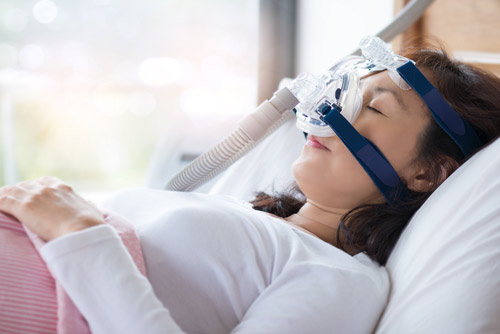How Do Oral Appliances Work? Oral appliances are an effective treatment option for people struggling with sleep-related issues, like obstructive sleep apnea or snoring. At Sleep Apnea Solutions of Cincinnati, we will custom-fit an oral appliance to improve the quality of sleep you get at night, reduce associated headaches, improve your alertness on the road, and revitalize your health. Oral appliances are an effective treatment option for people struggling with sleep-related issues, like obstructive sleep apnea or snoring. At Sleep Apnea Solutions of Cincinnati, we will custom-fit an oral appliance to improve the quality of sleep you get at night, reduce associated headaches, improve your alertness on the road, and revitalize your health. How Do Oral Appliances Work?Oral appliances are used because they can be placed in your mouth at night before sleep. These appliances help keep your tongue in place to ensure your airway remains open while you sleep. Specifically, they prevent the tissues at the back of the throat and those at the base of the tongue from collapsing into the airway. Most oral appliances are designed to hold the lower jaw in a forward position, significantly increasing airway size in the throat behind the tongue. This repositioning ensures smooth breathing throughout the night, prevents airway obstruction, and eliminates snoring. The Main Categories of Dental Appliances for Obstructive Sleep ApneaThere are three major types of oral appliances: mouth guards, tongue-stabilizing devices (TSDs), and mandibular advancement devices (MAD). The mouth guard is an appliance that repositions the lower jaw, typically to a lesser degree than other types. Tongue-stabilizing devices are designed to hold the tongue forward, using suction to keep it in a forward position, with the tip of the tongue resting against a plastic bulb inside the mouth. A mandibular advancement device connects the upper and lower teeth to move the jaw forward. The device moves the base of the tongue, keeping it forward, and in the process, it keeps the upper airway open throughout the night. How Effective Are These Oral Appliances?Like many other treatment options, oral appliances offer unique benefits to every individual, and not everyone will get the same benefits. For some people, oral appliances stop snoring completely. For others, these devices will work in conjunction with other forms of treatment to stop the snoring. Oral appliance therapy works best for persons with mild or moderate sleep apnea. Other aspects that could affect the success of these oral appliances include weight and sleeping position, such as lying on your side compared to sleeping on your back. However, until you have been fitted for an oral appliance device, you will not know whether they are effective. Continuous Positive Airway Pressure (CPAP) TherapyCPAP therapy is considered a better option in treating obstructive sleep apnea or snoring. This form of treatment uses a CPAP machine to deliver air pressure through a mask as you sleep. The air pressure is usually more significant than the pressure from the surrounding air, making it sufficient to keep your upper air passages open. The effectiveness of CPAP as a treatment option manifests immediately, regardless of the severity of the sleep apnea. Oral appliances prevent obstructed breathing but do not work effectively for persons with severe or central sleep apnea. Oral appliances require custom fitting, and we will advise you on the best device to use as you seek to find that elusive all-night rest. Contact us now at (513) 991-2520 to schedule an appointment. |